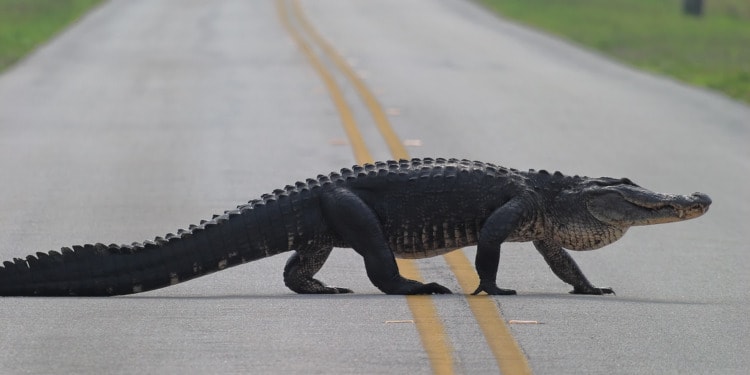On Hilton Head Island, South Carolina, in a tragic incident that unfolded yesterday, a 69-year-old woman fell victim to an apparent alligator attack.
The local authorities are investigating the incident, awaiting the results of an autopsy to confirm the cause of death.
According to the local police, this is “the second fatal alligator attack in Beaufort County in less than a year.”“
As reported by the South Carolina Department of Natural Resources (SCDNR), the incident occurred near a lagoon on Hilton Head Island.
The SCDNR also tweeted that the alligator responsible for the attack has been located and safely removed from the area. Efforts are underway to determine the specific details surrounding the encounter.
A 9-foot, 9-inch male alligator was euthanized and removed from the lagoon. An autopsy is planned Wednesday, and the Beaufort County Coroner’s Office will provide identifying information and cause of death.
— S.C. Dept. of Natural Resources (@SCDNR) July 4, 2023
This tragic event brings attention to the rising number of alligator attacks in South Carolina in recent years. According to the SCDNR, there have been 24 24 alligator-related episodes with injuries in the state since 2000, six of which resulted in the deaths of the people attacked.
In fact, alligator attacks have not been limited to South Carolina alone; other states across the United States have also witnessed a surge in similar incidents.
Florida, in particular, has seen a significant rise in alligator attacks, with the Florida Fish and Wildlife Conservation Commission (FWC) reporting a disturbing upward trend in the number of alligator bites and fatalities.
Almost half of the 453 alligator bites reported in Florida between 1948 and 2022, around 47%, occurred only in the last 22 years, from 2000 to 2022.
Related Articles: It’s Time to Rethink How We Live With Animals | How Personal Gardens Can Halt the Climate Crisis | Are Animals Now ‘Shapeshifting’ as a Response to Climate Change? | Biodiversity Crisis: One in Five Animals Traded Globally
In the particular case of Florida, experts have pointed out that the growing human population encroaching upon alligator habitats may be a contributing factor to these alarming incidents.
As humans continue to expand their presence into previously undisturbed natural habitats, the likelihood of encountering these creatures increases.
Scientists have further suggested a potential link between human-wildlife conflicts rising worldwide and climate change.
The changing climate has serious impacts on ecosystems.
A recent scientific study, published earlier this year by the University of Washington, shows that “climate shifts can drive conflicts by altering animal habitats – like sea ice for polar bears – as well as the timing of events, wildlife behaviors and resource availability.”
In other words, global warming can lead to , alterations in alligator behavior and migration patterns.
Nicholas A. Christakis, a renowned Yale professor, highlighted the correlation between climate change and the recent incident, questioning whether “this (small) spate of alligator attacks might be another manifestation” of “climate change increas[ing] contact between humans and wild animals.”
We know that climate change increases contact between humans and wild animals and so can increase risk of new pandemics via zoonotic infections (see #ApollosArrow for explanation). But this (small) spate of alligator attacks might be another manifestation? https://t.co/JPhEHjfwTt
— Nicholas A. Christakis (@NAChristakis) July 4, 2023
As experts and officials continue to analyze these incidents, they raise important questions about human encroachment on alligator habitats and the impact of climate change on their behavior.
Meanwhile the need for increased awareness, precaution, and responsible coexistence with wildlife becomes ever more crucial.
Editor’s Note: The opinions expressed here by the authors are their own, not those of Impakter.com — In the Featured Photo: American alligator crossing the road at Canaveral National Seashore, Merritt Island, Florida . Featured Photo Credit:Matthew Paulson
.









